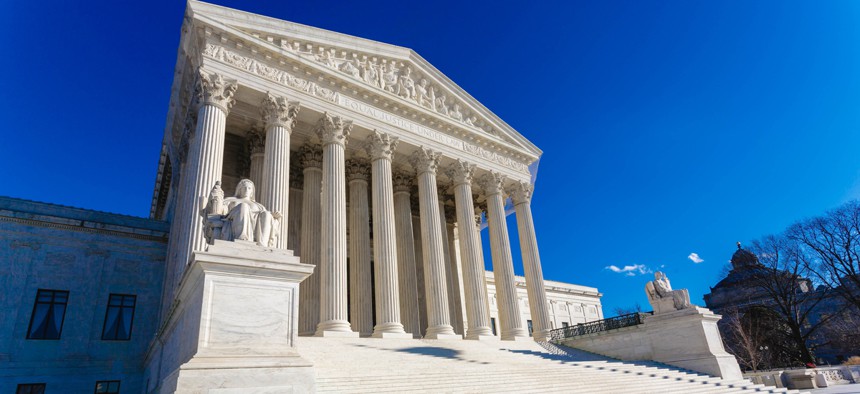Supreme Court Rules That a Warrant Is Necessary for Phone Location Data

Tinnaporn Sathapornnanont/Shutterstock.com
The decision is a victory for privacy advocates.
Worried about law enforcement following your digital footsteps? Now you'll be able to shout, "Get a warrant!"
The Supreme Court ruled Friday in a 5-4 decision that police need warrants in order to gather phone location data as evidence, CNET reports.
The case dates back to 2011, when police investigating a robbery case culled months and months of location data from a suspect's phone provider—12,898 locations in total, all without a warrant.
While the Sixth Circuit Court of Appeals ruled that phone data wasn't protected under the fourth amendment, the Supreme Court disagreed.
"The government's position fails to contend with the seismic shifts in digital technology that made possible the tracking of not only Carpenter's location but also everyone else's, not for a short period but for years and years," wrote Chief Justice John Roberts in the ruling.
The decision did not apply to things like security cameras and business records, however. It's likely that similar quandaries surrounding privacy and digital surveillance will crop up soon. Police departments around the county are beginning to deploy drones for reconnaissance and AI technology that can locate and scan human faces.
Reactions to the ruling from notable privacy advocates were enthusiastic.
The Supreme Court just ruled the government's decades-old practice of warrantlessly tracking your historical movements via cellphone records (CSLI) has in many cases violated the constitutional right to privacy. Major victory for @ACLU ― and America. #GetAWarrant #Carpenter pic.twitter.com/lqm4joMysm
— Edward Snowden (@Snowden) June 22, 2018
The Chief Justice, speaking simple truth. A vindication of our Fourth Amendment rights. Carpenter v. United States pic.twitter.com/Rvcv6vzg2j
— Cecillia Wang (@WangCecillia) June 22, 2018






